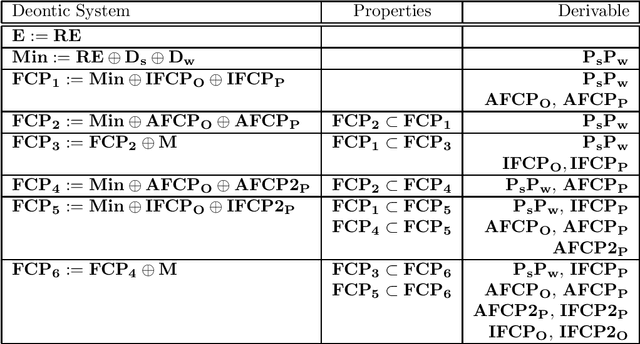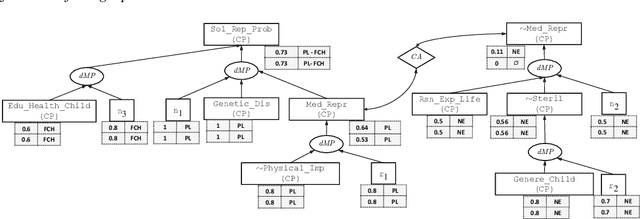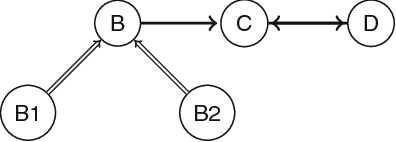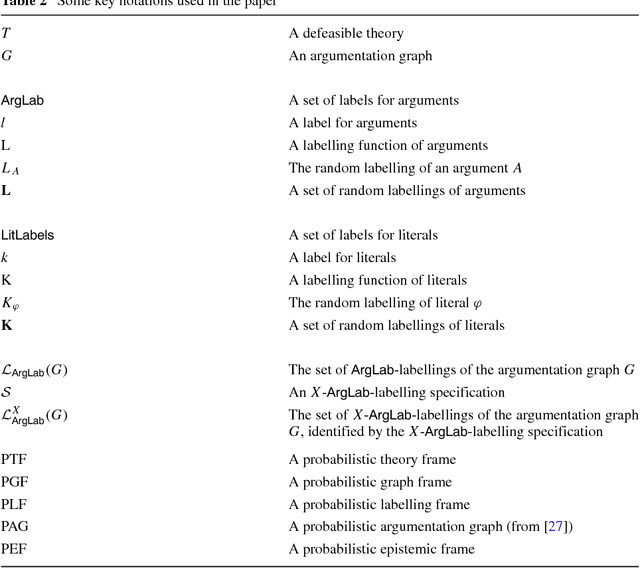Antonino Rotolo
Judicial Permission
Jun 05, 2025Abstract:This paper examines the significance of weak permissions in criminal trials (\emph{judicial permission}). It introduces a dialogue game model to systematically address judicial permissions, considering different standards of proof and argumentation semantics.
Rule-based Classifier Models
May 01, 2025Abstract:We extend the formal framework of classifier models used in the legal domain. While the existing classifier framework characterises cases solely through the facts involved, legal reasoning fundamentally relies on both facts and rules, particularly the ratio decidendi. This paper presents an initial approach to incorporating sets of rules within a classifier. Our work is built on the work of Canavotto et al. (2023), which has developed the rule-based reason model of precedential constraint within a hierarchy of factors. We demonstrate how decisions for new cases can be inferred using this enriched rule-based classifier framework. Additionally, we provide an example of how the time element and the hierarchy of courts can be used in the new classifier framework.
When Precedents Clash
Oct 14, 2024Abstract:Consistency of case bases is a way to avoid the problem of retrieving conflicting constraining precedents for new cases to be decided. However, in legal practice the consistency requirements for case bases may not be satisfied. As pointed out in (Broughton 2019), a model of precedential constraint should take into account the hierarchical structure of the specific legal system under consideration and the temporal dimension of cases. This article continues the research initiated in (Liu et al. 2022; Di Florio et al. 2023), which established a connection between Boolean classifiers and legal case-based reasoning. On this basis, we enrich the classifier models with an organisational structure that takes into account both the hierarchy of courts and which courts issue decisions that are binding/constraining on subsequent cases. We focus on common law systems. We also introduce a temporal relation between cases. Within this enriched framework, we can formalise the notions of overruled cases and cases decided per incuriam: such cases are not to be considered binding on later cases. Finally, we show under which condition principles based on the hierarchical structure and on the temporal dimension can provide an unambiguous decision-making process for new cases in the presence of conflicting binding precedents.
Stable Normative Explanations: From Argumentation to Deontic Logic
Jul 11, 2023Abstract:This paper examines how a notion of stable explanation developed elsewhere in Defeasible Logic can be expressed in the context of formal argumentation. With this done, we discuss the deontic meaning of this reconstruction and show how to build from argumentation neighborhood structures for deontic logic where this notion of explanation can be characterised. Some direct complexity results are offered.
Modelling and Explaining Legal Case-based Reasoners through Classifiers
Oct 20, 2022Abstract:This paper brings together two lines of research: factor-based models of case-based reasoning (CBR) and the logical specification of classifiers. Logical approaches to classifiers capture the connection between features and outcomes in classifier systems. Factor-based reasoning is a popular approach to reasoning by precedent in AI & Law. Horty (2011) has developed the factor-based models of precedent into a theory of precedential constraint. In this paper we combine the modal logic approach (binary-input classifier, BLC) to classifiers and their explanations given by Liu & Lorini (2021) with Horty's account of factor-based CBR, since both a classifier and CBR map sets of features to decisions or classifications. We reformulate case bases of Horty in the language of BCL, and give several representation results. Furthermore, we show how notions of CBR, e.g. reason, preference between reasons, can be analyzed by notions of classifier system.
Deontic Meta-Rules
Sep 23, 2022Abstract:The use of meta-rules in logic, i.e., rules whose content includes other rules, has recently gained attention in the setting of non-monotonic reasoning: a first logical formalisation and efficient algorithms to compute the (meta)-extensions of such theories were proposed in Olivieri et al (2021) This work extends such a logical framework by considering the deontic aspect. The resulting logic will not just be able to model policies but also tackle well-known aspects that occur in numerous legal systems. The use of Defeasible Logic (DL) to model meta-rules in the application area we just alluded to has been investigated. Within this line of research, the study mentioned above was not focusing on the general computational properties of meta-rules. This study fills this gap with two major contributions. First, we introduce and formalise two variants of Defeasible Deontic Logic with Meta-Rules to represent (1) defeasible meta-theories with deontic modalities, and (2) two different types of conflicts among rules: Simple Conflict Defeasible Deontic Logic, and Cautious Conflict Defeasible Deontic Logic. Second, we advance efficient algorithms to compute the extensions for both variants.
Avoiding Pragmatic Oddity: A Bottom-up Defeasible Deontic Logic
Sep 09, 2022Abstract:This paper presents an extension of Defeasible Deontic Logic to deal with the Pragmatic Oddity problem. The logic applies three general principles: (1) the Pragmatic Oddity problem must be solved within a general logical treatment of CTD reasoning; (2) non-monotonic methods must be adopted to handle CTD reasoning; (3) logical models of CTD reasoning must be computationally feasible and, if possible, efficient. The proposed extension of Defeasible Deontic Logic elaborates a preliminary version of the model proposed by Governatori and Rotolo (2019). The previous solution was based on particular characteristics of the (constructive, top-down) proof theory of the logic. However, that method introduces some degree of non-determinism. To avoid the problem, we provide a bottom-up characterisation of the logic. The new characterisation offers insights for the efficient implementation of the logic and allows us to establish the computational complexity of the problem.
Is Free Choice Permission Admissible in Classical Deontic Logic?
May 19, 2019
Abstract:In this paper, we explore how, and if, free choice permission (FCP) can be accepted when we consider deontic conflicts between certain types of permissions and obligations. As is well known, FCP can license, under some minimal conditions, the derivation of an indefinite number of permissions. We discuss this and other drawbacks and present six Hilbert-style classical deontic systems admitting a guarded version of FCP. The systems that we present are not too weak from the inferential viewpoint, as far as permission is concerned, and do not commit to weakening any specific logic for obligations.
Dealing with Qualitative and Quantitative Features in Legal Domains
Mar 05, 2019
Abstract:In this work, we enrich a formalism for argumentation by including a formal characterization of features related to the knowledge, in order to capture proper reasoning in legal domains. We add meta-data information to the arguments in the form of labels representing quantitative and qualitative data about them. These labels are propagated through an argumentative graph according to the relations of support, conflict, and aggregation between arguments.
* arXiv admin note: text overlap with arXiv:1903.01865
A Labelling Framework for Probabilistic Argumentation
Mar 09, 2018



Abstract:The combination of argumentation and probability paves the way to new accounts of qualitative and quantitative uncertainty, thereby offering new theoretical and applicative opportunities. Due to a variety of interests, probabilistic argumentation is approached in the literature with different frameworks, pertaining to structured and abstract argumentation, and with respect to diverse types of uncertainty, in particular the uncertainty on the credibility of the premises, the uncertainty about which arguments to consider, and the uncertainty on the acceptance status of arguments or statements. Towards a general framework for probabilistic argumentation, we investigate a labelling-oriented framework encompassing a basic setting for rule-based argumentation and its (semi-) abstract account, along with diverse types of uncertainty. Our framework provides a systematic treatment of various kinds of uncertainty and of their relationships and allows us to back or question assertions from the literature.
 Add to Chrome
Add to Chrome Add to Firefox
Add to Firefox Add to Edge
Add to Edge